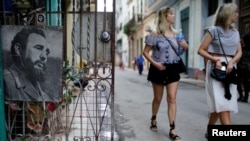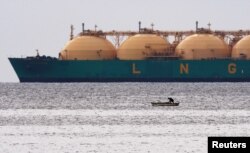Chinese exports to Cuba have plunged this year in the latest sign of a worsening in the Communist-run island's financial situation, which began in 2015 with the economic crisis in its top trading partner Venezuela.
Chinese exports to Cuba slumped 29.8 percent to $1 billion from January through October compared with the same period last year, according to Chinese customs.
Chinese exports peaked at a record $1.9 billion in 2015, nearly 60 percent above the annual average of the previous decade. They slipped slightly last year to $1.8 billion.
China sends a broad array of supplies to Cuba, from machinery and transportation equipment to raw materials, chemicals and food.
The Chinese commercial office in Havana said the decline was due to Cuba's payment problems. China ranked as Cuba’s first trading partner in terms of goods in 2016, followed by Venezuela.
The economic crisis in Venezuela, lower revenue from commodity and related exports, the devastation wrought by Hurricane Irma and the Trump administration’s tightening of business and travel restrictions have left Cuba without cash to pay some suppliers and investment partners.
Western diplomats and businessmen estimate Cuban state-run banks, which must pay suppliers, have fallen behind by anywhere from $800 million to well over a billion dollars since 2015.
“China's exports to Cuba are experiencing difficult times and the pressure continues for many businessmen due to the economic difficulties this Caribbean nation is going through,” Hong Xiao, economic and commercial counselor at the Chinese embassy, told Chinese business representatives attending a Havana trade fair last month, according to news agency Xinhua.
Cuba’s trade in goods last year was $12.6 billion, compared with $15 billion in 2015, more than 80 percent imports.
The cash crunch and lower oil supplies from Venezuela have forced the government to slash imports and reduce the use of fuel and electricity, helping tip its economy into recession in 2016 for the first time in nearly a quarter century.
The island’s economy relies on imports to fuel economic activity, so a drop in Chinese exports does not bode well.
“The fall in imports from China is a pattern more or less across the board and in part reflects the government’s efforts to balance revenues and pay debt,” said former Cuban central bank economist Pavel Vidal, now a professor at Universidad Javeriana Cali in Colombia.
“That means less consumer goods and supplies for the productive sector, which effects growth,” said Vidal, who expects little if any growth this year despite increased government spending and foreign investment.
The government had hoped for a 2 percent increase in the gross domestic product after last year’s contraction of 0.9 percent.






